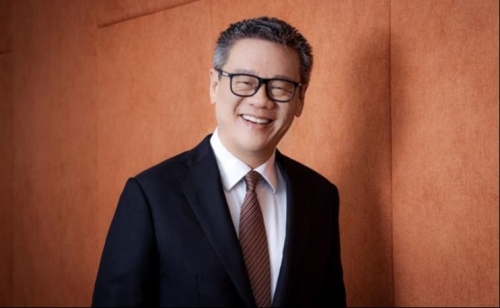
Mental Health Awareness Month, observed every May, is dedicated to raising awareness about mental health issues and the importance of mental well-being. The month-long observance encourages open conversations about mental health, aiming to reduce the stigma often associated with mental illnesses.
In the second of three-part series, the Singapore National Co-operative Federation has spoken to Daryl Tan, the co-founder and resident therapist at local therapy clinic Goodity Co., on how he and his team strive to take down the barriers on therapy.
“It’s a good thing more youths are sharing their experience online,” said the former-social worker on the prevalence of therapy-related content on social media. “(Trauma bonding) is almost like the phrase ‘misery loves company’. People realised that they are not alone. It’s a good thing when they seek professional help too.”
Read the full interview below.
Sng Ler Jun: How would you introduce yourself to someone you're meeting for the first time?
Daryl Tan: I have multiple identities. First, I co-founded Goodity Co, a therapy clinic offering therapeutic services for individuals, families, and couples. We also cover corporate talks about mental health and offer mental health workshops for companies. I'm also a co-founder of a local fine jewellery company. Finally, I'm a Brazilian Jiu-Jitsu coach who trains people for competitions. That's the gist.
LJ: Tell me more about Goodity Co.
DT: My business partner Charmaine and I wanted to set up a therapy clinic that is not the usual. People generally get the vibe that therapy is scary and daunting. We wanted to break down the boundaries surrounding therapy and make it accessible to strangers. We wanted to show people that therapists are humans as well.
LJ: How do you go about showing just that?
DT: We are heavily involved in social media which is something that many therapy clinics don’t really do. So instead of appearing as a static photo with a long caption, we filmed ourselves talking to people and communicating with them. The audience gets to see who the therapists are, and we suppose this brings down the barriers.
LJ: At one point, you and your team hosted Coffee Talks, where over a 15-minute period, people could chat with a therapist about their problems over a cup of coffee in town.
DT: I’d say that was the soft-launch of Goodity Co. We decided to put into action what breaking down barriers actually mean. We had initially wanted to set up a bar — because there’s a saying that bartenders are accidental therapists — but as it turns out, getting a licence for that is extremely difficult. The next best thing is coffee.
The premise of Coffee Talk is really for people to chat with a stranger who happens to be a therapist. You could pop by to rant about your day and off-load before you leave and go about your day. The first hurdle for people before they see therapy is actually being able to talk to somebody.
LJ: For first timers to therapy, is there anything he or she should do or prepare?
DT: The first session is usually what we call the vibe check. You come in and sit down with a therapist and we’d get to know each other first before we can build a solution together. You need to know that your therapists do not know who you are and we may not have the answers. My practice is to let clients set their tone; tell me what they want to take away of this session and that would set the route ahead.
LJ: How would you encourage those sitting on the fence to take that leap of faith?
DT: We have this thing where we offer free virtual consultations. Anyone can book us and one of our therapists would speak to them over a Zoom call for 15 minutes. It's free. You don't have to pay anything. You get to see the people that are running Goodity Co. You get to also ask questions: What is (therapy) like? How much does it cost? What do I have to talk about? What do we usually talk about? What, who are you? What are your qualifications? I tell my folks that this is not a sales pitch; we don’t sell during this consultation.
LJ: What’s the cadence like? How do I know when to stop?
DT: A good therapist or rather, an ethical therapist will tell them: “You don't need me anymore.” There is a running joke I tell people: I'm trying to put myself out of a job. Which is ironic. More importantly, I want my clients to take home the skills developed and the resources learnt to manage themselves effectively. But whenever they need, they can always pop by for a chat.
LJ: How can employers promote a good work environment where employees are in a good zone?
DT: This is very cliche but it's really just good communication. The key thing for us, as consultants, is to find out what the communication style is like. How do you communicate with your employees? How do we talk to each other? How can employees be able to voice our opinions without the fear of being judged or without the fear of having their appraisals be affected?
LJ: What are some telltale signs or triggers indicating that employees’ mental wellness has taken a hit?
DT: When all you get is “No comments”.
This interview has been edited and condensed for clarity.
Images courtesy of Goodity Co and Daryl Tan.
By Sng Ler Jun




